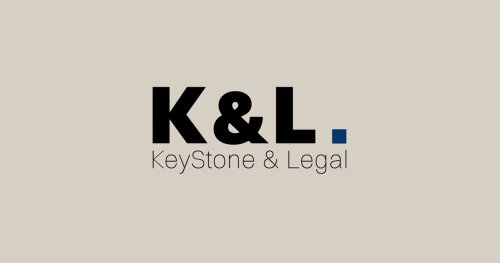Best Tax Lawyers in South Korea
Share your needs with us, get contacted by law firms.
Free. Takes 2 min.
Or refine your search by selecting a city:
List of the best lawyers in South Korea
About Tax Law in South Korea
Tax law in South Korea is governed by a comprehensive set of regulations and policies designed to manage the collection of taxes, which includes income tax, corporate tax, value-added tax (VAT), and customs duties, among others. The Korean tax system is characterized by a centralized structure where the National Tax Service (NTS) plays a pivotal role. Understanding the complexities of tax law is crucial for individuals and businesses to ensure compliance, benefit from potential tax incentives, and avoid penalties.
Why You May Need a Lawyer
There are several scenarios in which you may need the expertise of a tax lawyer in South Korea. Common situations include:
- Tax Disputes: If you are facing an audit or dispute with the NTS, a tax lawyer can represent your interests and help resolve discrepancies.
- Complex Filings: Businesses with complex financial structures may need legal advice to ensure accurate tax filings and take advantage of available deductions or credits.
- Tax Planning: Strategic tax planning, especially for businesses or individuals with significant income or investments, can benefit from professional legal guidance.
- Regulatory Changes: Staying informed about and adapting to changes in tax laws can be challenging without legal expertise.
- Foreign Entities: Foreign businesses and expatriates need to navigate both local and international taxation laws, which can be complex.
Local Laws Overview
Key aspects of South Korean tax laws include:
- Income Tax: Individuals are taxed on a progressive scale, with non-residents taxed only on income sourced within Korea.
- Corporate Income Tax: South Korea imposes a corporate tax on worldwide income of resident companies. Non-resident companies are taxed only on Korean-sourced income.
- Value-Added Tax (VAT): VAT is levied on the supply of goods and services at a standard rate of 10%.
- Withholding Tax: A withholding tax is applied to certain types of income, including dividends and royalties, at varying rates depending on treaties.
- Property Taxes: Taxes related to property acquisitions, holdings, and transfers include acquisition tax, registration tax, and property tax.
Frequently Asked Questions
What is the income tax rate in South Korea?
Individual income tax rates in South Korea range from 6% to 45% depending on the income bracket, with higher rates applied to higher income levels.
How is corporate tax applied to foreign businesses?
Foreign corporations in South Korea are subject to corporate income tax on income sourced within Korea. The tax rate can vary based on turnover and other factors.
Is there a sales tax in South Korea?
Yes, South Korea levies a Value-Added Tax (VAT) at a standard rate of 10% on goods and services.
What deductions are available for individual taxpayers?
South Korea offers deductions for medical expenses, educational expenses, insurance premiums, and charitable donations, among others.
Are there tax treaties between South Korea and other countries?
South Korea has tax treaties with many countries to prevent double taxation and tax evasion, which can affect taxes on income such as dividends, interest, and royalties.
What penalties exist for late tax payment?
Penalties for late tax payments can include fines and interest charges, with rates varying based on the duration of the delay.
How can I appeal a tax decision?
If you disagree with a tax assessment, you can file an objection with the National Tax Service or appeal to the Tax Tribunal within prescribed periods.
What is the process for a tax audit?
A tax audit process typically involves notices from the tax authorities, document requests, and potential adjustments to tax liabilities based on audit findings.
How is inheritance tax applied in South Korea?
Inheritance tax applies to the transfer of estate upon death and is calculated based on the value of the estate, with progressive tax rates.
Can tax credits be carried forward?
Certain tax credits, like R&D tax credits, can be carried forward to offset future tax liabilities if not fully utilized in the applicable year.
Additional Resources
For further assistance or clarification on tax matters, consider reaching out to the following resources:
- National Tax Service (NTS): The main government body responsible for tax collection and regulation.
- Korean Bar Association: Offers directories to find certified tax attorneys.
- Chamber of Commerce: Provides resources for businesses navigating tax regulations.
- Public Tax Offices: Local offices offer assistance and information on tax obligations.
Next Steps
If you need legal assistance regarding tax issues in South Korea, consider the following steps:
- Assess Your Needs: Determine whether you need help with disputes, planning, or filing.
- Consult a Professional: Seek initial consultations with tax lawyers to discuss your situation.
- Gather Documentation: Ensure you have all relevant documents, such as income records, tax filings, and correspondence from the NTS.
- Evaluate Legal Options: Based on your consultations, decide on the best course of action to address your tax issues.
- Stay Informed: Keep up-to-date with any changes in tax law that may impact you.
Lawzana helps you find the best lawyers and law firms in South Korea through a curated and pre-screened list of qualified legal professionals. Our platform offers rankings and detailed profiles of attorneys and law firms, allowing you to compare based on practice areas, including Tax, experience, and client feedback.
Each profile includes a description of the firm's areas of practice, client reviews, team members and partners, year of establishment, spoken languages, office locations, contact information, social media presence, and any published articles or resources. Most firms on our platform speak English and are experienced in both local and international legal matters.
Get a quote from top-rated law firms in South Korea — quickly, securely, and without unnecessary hassle.
Disclaimer:
The information provided on this page is for general informational purposes only and does not constitute legal advice. While we strive to ensure the accuracy and relevance of the content, legal information may change over time, and interpretations of the law can vary. You should always consult with a qualified legal professional for advice specific to your situation.
We disclaim all liability for actions taken or not taken based on the content of this page. If you believe any information is incorrect or outdated, please contact us, and we will review and update it where appropriate.
Browse tax law firms by city in South Korea
Refine your search by selecting a city.
















